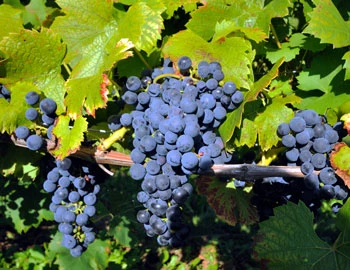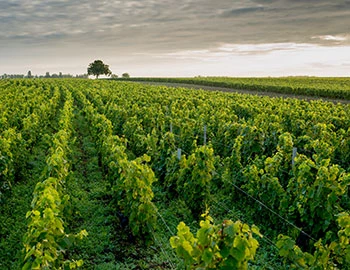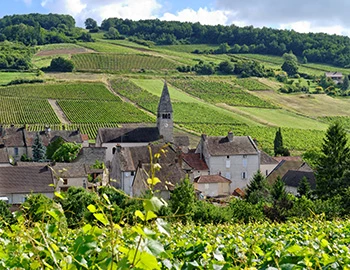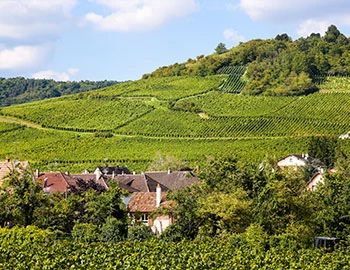
Pommard 1er Cru Clos de la Commaraine Monopol 2021
AC, Domaine de la Commaraine, 750 ml

| Grape variety: | Pinot noir |
| Producer: | Domaine de la Commaraine |
| Origin: | France / Bourgogne / Côte de Beaune |
| Other bottle sizes: | |
| Other vintages: |
Description
Grown on one of the most beautiful terroirs in Burgundy. A total of 20 barrels were produced, 10 new and the remaining 10 used ones. The rising Pinot Noir aromas from the glass remember wild berries and raspberries mingled with hints of orange peel, smoked wood and toasty oak. On the palate it shows its full body, rich, fleshy and enveloping, with juicy acidity and velvety melting tannins. The aromatic aftertaste lingers on your palate and invites to the next sip.
Attributes
| Origin: | France / Bourgogne / Côte de Beaune |
| Grape variety: | Pinot noir |
| Ripening potential: | 2 to 12 years |
| Drinking temperature: | 16 to 18 °C |
| Food Pairing: | Rabbit ragout with olives, Roasted lamb gigot, Roast veal with morel sauce, Goulash, boeuf bourguignon |
| Harvest: | hand-picking with simultaneous grape sel |
| Volume: | 13.0 % |
| Note: | Contains sulphites |
Pinot noir
Blueprint of the terroir
No other variety expresses its terroir as precisely as Pinot noir. It is a sensitive, fragile grape. But when it succeeds, it gives the world some of its very greatest wine plants. It especially excels in Burgundy, where it has been cultivated for at least 700 years. Even in the middle ages, it was considered so precious that it was kept separate from other grapes so as to not diminish its value. The finest examples are delicate and fragrant with aromas of cherries and red berries. With maturity, notes of forest floor, leather and truffles enter as well. An irresistible fruity sweetness still shines through, even after several decades. The Pinot noir does well in cool locations: in Switzerland and in Germany, where it is known as Blauburgunder and Spätburgunder respectively; in Alsace and in South Tyrol, in Oregon, New Zealand and Tasmania. Not least, it yields fantastic champagnes. It is a wonderful culinary companion. With its soft tannins and charming bouquet, it meshes with everything, from Güggeli and cheeses to fried fish.

Côte de Beaune
Côte de Beaune: guarantor of elegance
The city of Beaune is the cultural and economic centre of Burgundy. The prestigious vineyard sites, stretching in a band from Santenay (located about 20 kilometres south of Beaune) to the village of Aloxe-Corton (five kilometres north of Beaune), form the Côte de Beaune. Legendary, uniquely expressive crus originate here. In fact, the most prestigious Chardonnay growths in the world are produced around Chassagne-Montrachet, Puligny-Montrachet and Meursault.

Bourgogne
Burgundy: home of the crus
Burgundy and Bordeaux are France’s most prestigious wine regions. Nonetheless, they are completely distinct in character: while Bordeaux, as the land of the chateaux, enjoys an aristocratic image, Burgundy has retained its rustic agrarian structure. Burgundy stretches for over 200 kilometres, from Dijon in the north to Lyon in the south. In a highly complex jigsaw of the most diverse of terroirs, Chardonnay and Pinot Noir demonstrate the subtle ways in which they embody their sources.

France
France – Philosophy in a bottle
According to French philosophy, wine should be an expression of the soil and climate. They use the word “terroir” to describe this. Terroir makes every wine different, and many especially good. French wine is regarded worldwide as an expression of cultural perfection. The French believe that humans are responsible for the quality of the berries, the vine variety for their character, and nature for the quantity. This philosophy can be expressed succinctly as: “the truth is the vineyard, not the man.”


